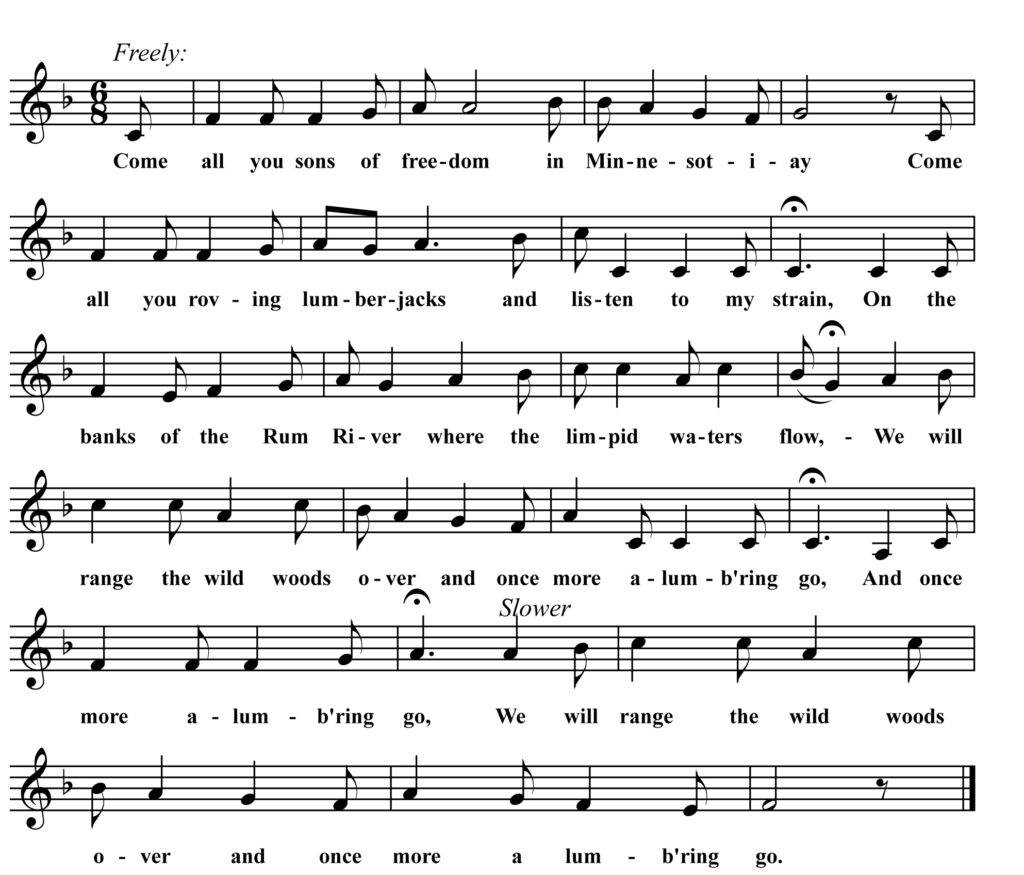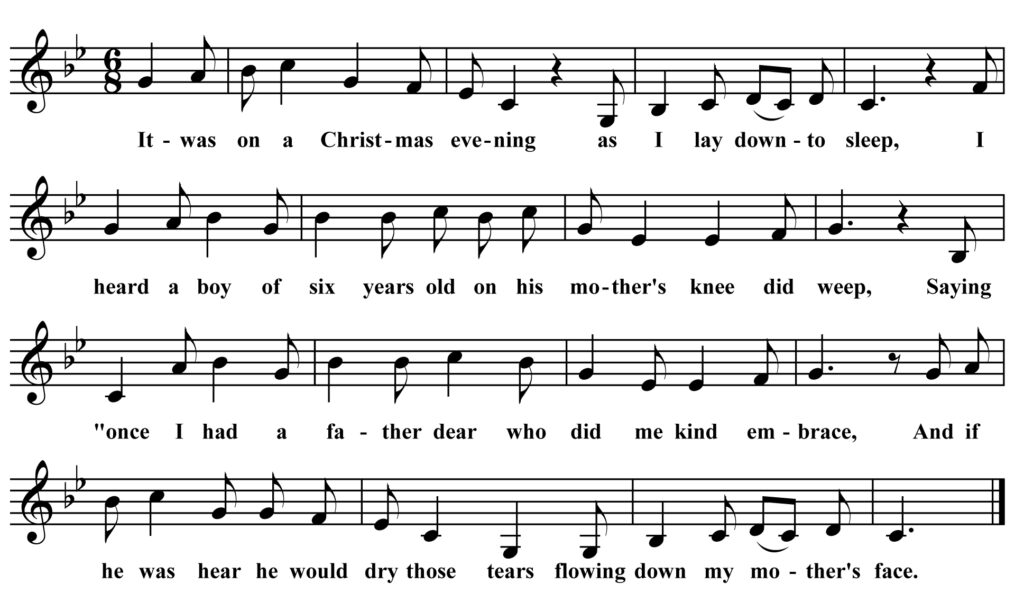Once More A-Lumbering Go

Come all you sons of freedom in Minnesot-i-ay,
Come all you roving lumberjacks and listen to my strain,
On the banks of the Rum River where the limpid waters flow,
We will range the wild woods over and once more a-lumbering go,
And once more a lumbering go,
We will range the wild woods over and once more a-lumbering go.
With our cross-cut saws and axes we will make the woods resound,
And many a tall and stately tree will come crashing to the ground,
With cant-hooks on our shoulders to our boot tops deep in snow,
We will range the wild woods over and once more a-lumbering go,
And once more a lumbering go,
We will range the wild woods over and once more a-lumbering go.
You may talk about your farms, your houses and fine places,
But pity not the shanty boys while dashing on their sleigh,
For around the good campfire at night we’ll sing while wild winds blow,
And we’ll range the wild woods over and once more a-lumbering go,
And once more a-lumbering go,
We will range the wild woods over and once more a-lumbering go.
Then when navigation opens and the water runs so free,
We’ll drive logs to St. Anthony once more our girls to see,
They will all be there to welcome us and our hearts in rapture flow,
We will stay with them through summer then once more a-lumbering go,
And once more a-lumbering go,
We will stay with them through summer, then once more a-lumbering go.
When our youthful days are ended and our stories are growing old,
We’ll take to us each man a wife and settle on the farm,
Enough to eat, to drink, to wear; content through life we go,
We will tell our wives of our hard times, and no more a-lumbering go,
And no more a-lumbering go,
We will tell our wives of our hard times, and no more a-lumbering go.
I am working this month with St. Paul playwright Jeremiah Gamble of the Bucket Brigade Theater on a new play called Shanty Boys of Pine County that will feature songs and stories from my research. One song we were considering for the play is “Once More A-Lumbering Go” (sometimes called “The Logger’s Boast”) as recorded by Alan Lomax in St. Louis, Michigan in 1938 from the singing of Carl Lathrop. I learned Lathrop’s version years ago. It features place names of the Saginaw area and, as I am always drawn to Minnesota-specific songs, I stopped singing it at some point.
Much to my delight, when I started looking around for other versions, I came across a fragment localized to the Rum River here in Minnesota! It turns up in an intriguing article published April 27, 1947 in the Minneapolis Journal about the establishment here of a Folk Arts Foundation of Minnesota. The article references the Finnish and Scots Gaelic songs recorded by Sidney Robertson in northeastern Minnesota (see Laura MacKenzie’s wonderful From Uig to Duluth project!) and calls for more field recording to be done in Minnesota.
The article includes a fragment of “Once More A-Lumbering Go” submitted by Elizabeth Sadley of Minneapolis. Sadley writes:
…I am sending you the words, as far as I can recall, of a lumberjack song that my mother used to sing.
My mother has been dead several years, and the verses here are only a fragment of the entire song. Perhaps some one of my mother’s generation can complete the words. The tune is very simple.
My family moved to Princeton, Minn., about 1875. My father operated two grist mills and supplied the lumber camps in the Mille Lac lake area. This song was sung by the lumberjacks who floated the logs down both branches of the Rum river to the saw mills.
Sadley’s fragment is lines 3 & 4 of the first and last verses above along with the chorus of verse one. I created lines 1 & 2 of the first and fourth verses to further localize the song to the Rum River story and transcribed the rest of the text and melody from Lomax’s recording of Lathrop.


